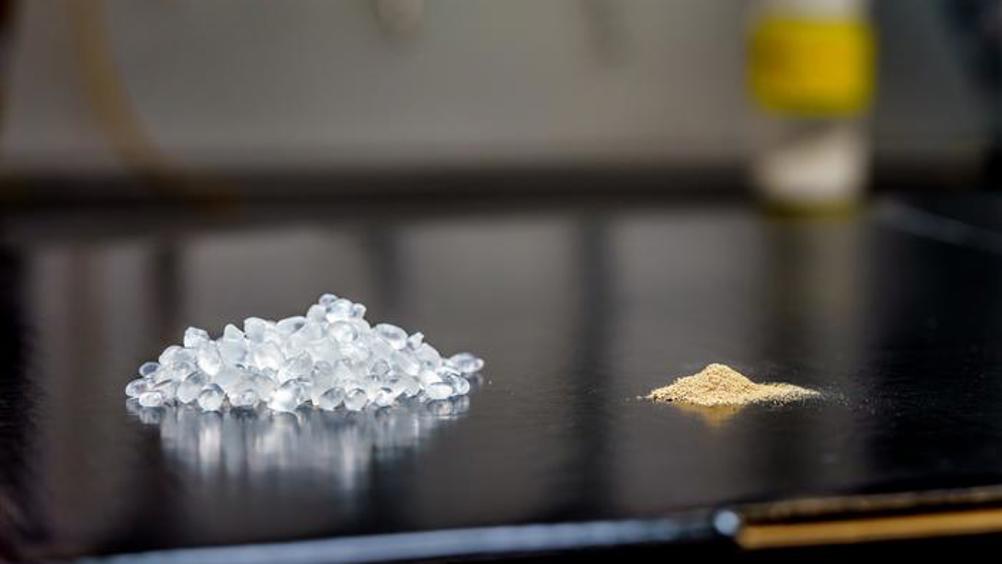Bacteria added to plastic to enhance biodegradability
A form of bacteria used as a probiotic and food additive is being incorporated into plastic that biodegrades when exposed to compost.

Led by a team at the University of California San Diego, the research has developed a biodegradable form of thermoplastic polyurethane (TPU), a melt-processable thermoplastic elastomer found in footwear, floor mats, cushions and memory foam.
The TPU is filled with bacterial spores that, when exposed to nutrients present in compost, germinate and break down the material at the end of its life cycle. The work is detailed in Nature Communications.
The biodegradable TPU was made with bacterial spores from a strain of Bacillus subtilis that breaks down plastic polymer materials.
“It’s an inherent property of these bacteria,” said study co-senior author Jon Pokorski, a nanoengineering professor at the UC San Diego Jacobs School of Engineering and co-lead of the university’s Materials Research Science and Engineering Center (MRSEC). “We took a few strains and evaluated their ability to use TPUs as a sole carbon source, then picked the one that grew the best.”
Register now to continue reading
Thanks for visiting The Engineer. You’ve now reached your monthly limit of news stories. Register for free to unlock unlimited access to all of our news coverage, as well as premium content including opinion, in-depth features and special reports.
Benefits of registering
-
In-depth insights and coverage of key emerging trends
-
Unrestricted access to special reports throughout the year
-
Daily technology news delivered straight to your inbox










Water Sector Talent Exodus Could Cripple The Sector
Maybe if things are essential for the running of a country and we want to pay a fair price we should be running these utilities on a not for profit...